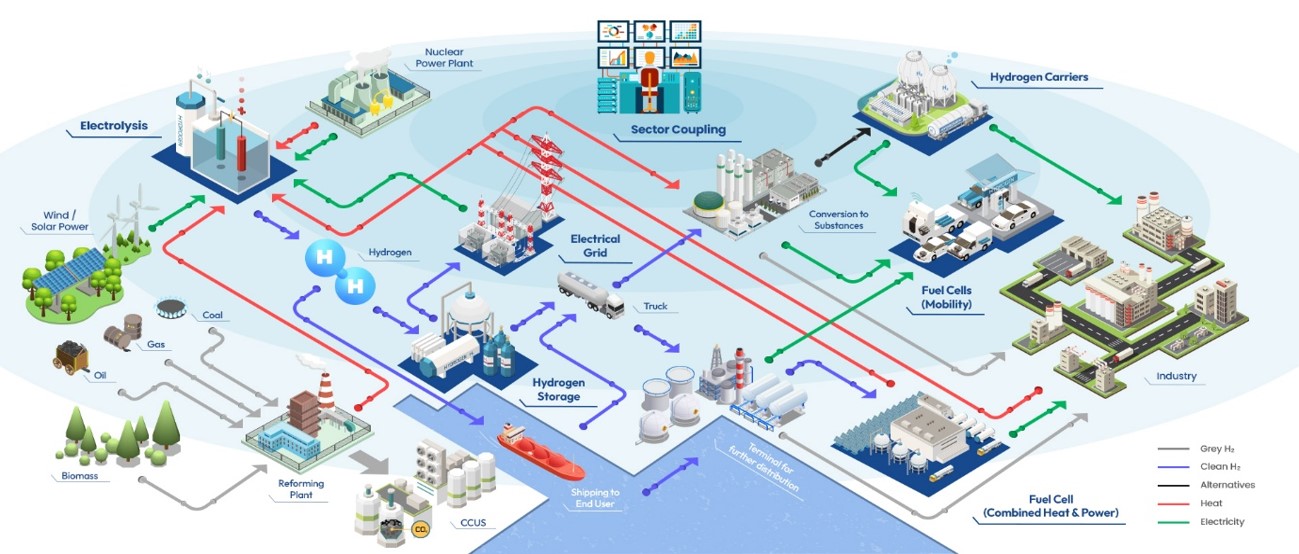Sector coupling is a key strategy for maximizing the utilization of renewable energy and achieving carbon neutrality by integrating energy sectors that have traditionally operated independently, such as electricity, heat, transportation, and industry. In particular, hydrogen-based sector coupling is an integrated energy system approach in which electricity generated from renewable sources is converted into green hydrogen via electrolysis, and this hydrogen is then utilized in sectors such as steel, chemicals, and long-distance transportation, where direct electrification is challenging. The core principle lies in the interconversion between energy vectors through Power-to-X (PtX) technologies. Surplus renewable electricity is used to produce hydrogen via electrolysis systems, and this hydrogen can be reconverted into electricity through fuel cells or transformed into chemical feedstocks such as ammonia and methanol, thereby substituting fossil fuels in various industrial sectors.

Current research on hydrogen-based sector coupling primarily focuses on optimizing individual sectors, insufficiently considering inter-sector interactions and dynamic learning-by-doing effects. Future research directions are concentrating on integrated system optimization and high-resolution spatiotemporal modeling. Specifically, quantitative analysis of coupling effects between power grids and hydrogen networks, conducting comparative evaluations of operational flexibility and grid interconnection impacts among various technological options (Alkaline, PEM, AEM, SOEC), and modeling the flexibility provision effects of hydrogen storage and pipeline infrastructure on power systems to determine optimal capacity and placement have become critical research priorities.
Our laboratory will conduct hydrogen-based sector coupling optimization research through a system modeling-based integrated approach.
The main research areas are as follows:
· Fuel Cell and Electrolysis System Design/Integration Optimization
Model performance characteristics under various operating conditions and load patterns, while developing an optimal design methodology that simultaneously considers system efficiency and durability.
· Integrated Energy System Modeling
Construct numerical simulation-based models to analyze dynamic behavior of power-hydrogen-heat coupled systems and derive optimal operational strategies responsive to renewable energy variability. This will quantify sector coupling's impact on overall energy system flexibility and economic viability.
· Economic Feasibility and Policy Analysis
Develop economic evaluation models incorporating diverse carbon pricing scenarios and technology learning curves to present hydrogen economy feasibility and policy support measures. Through these system integration studies, we aim to contribute to building optimal hydrogen energy systems for carbon neutrality and provide practical solutions to related industries.